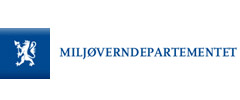Still lack of ambition and knowledge gaps in climate change negotiations
People-centred research needed, says Gender CC in Press Release
11.06.2010 |Press Release Gender CC
This is aggravated by the fact that researchers have been looking more into physical aspects of climate change than into social and political issues. In particular cross-cutting issues such as the linkages between Gender and Climate Change have widely been ignored. However, in a number of areas relevant to climate change, there is strong evidence for a gender dimension that needs to be taken into consideration, in particular in regards to vulnerability and adaptation, as well as to attitudes and contributions towards solutions.
Still, a vicious cycle hampers the exploration of these dimensions in mainstream research: as long as researchers do not look at gender aspects, they will not find them, and gender aspects will continue to be concealed?, formulates Gotelind Alber from GenderCC one of the findings of a symposium which took place back to back to the negotiations. GenderCC Women for Climate Justice together with BRIDGE, GDN, Bread for the World, EED, LIFE and WECF invited climate change and development researchers, practitioners and experts to discuss existing research gaps, and develop recommendations for further research.
Participants emphasized that research clearly should respond to the needs of communities on the ground, and empowering men and women to participate in decision-making and implementation. This implies people-centred and participatory methodogies. More research is also needed to enable the development of gender sensitive policies, programmes and measures in adaptation as well as in mitigation. To move the issue forward, participants agreed upon strengthening joint efforts and gathering information by building up a gender and climate change research network.
?We don?t need research for the sake of research. But we urgently need more knowledge to improve policy-making as well as activities on the ground?, concluded Maira Zahur, a researcher in the field of Gender and Disaster.
------------
Marion Rolle
GenderCC - Women for Climate Justice
Anklamer Str. 38
D-10115 Berlin
Germany
phone +49.30.21980088
mobile +49.176.94261787
m.rolle@gendercc.net
http://www.gendercc.net
Related News
Meet the Winners of the Gender Just Climate Solutions Award at COP24
On the 70th anniversary of the Universal Declaration of Human Rights, we awarded Gender Just Climate Solutions Winners at the climate negotiations in Katowice, Poland
11.12.2018
Invitation: Gender Just Climate Solutions Award 2018
10 December, COP24 Katowice
04.12.2018
Getting to the Future We Want
4-7 November, Brussels: European Environmental Bureauís (EEB) Annual Conference
12.11.2018
GoodFood4All
WECF and partners all over Europe start GoodFood4All Campaign
06.11.2018
#Ruralwomen: join our Women2030 campaign!
15.10.2018






































